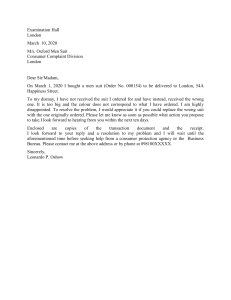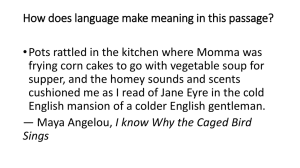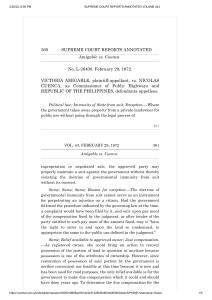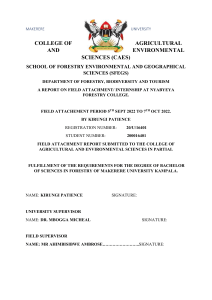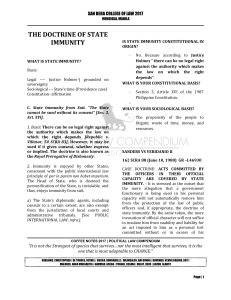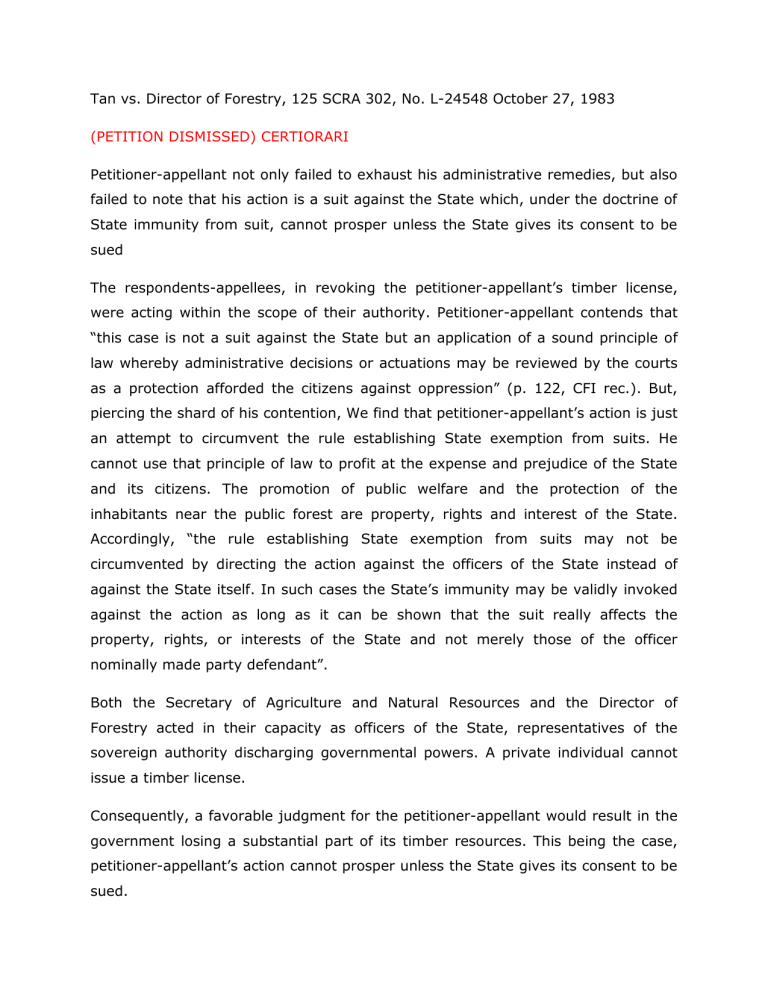
Tan vs. Director of Forestry, 125 SCRA 302, No. L-24548 October 27, 1983 (PETITION DISMISSED) CERTIORARI Petitioner-appellant not only failed to exhaust his administrative remedies, but also failed to note that his action is a suit against the State which, under the doctrine of State immunity from suit, cannot prosper unless the State gives its consent to be sued The respondents-appellees, in revoking the petitioner-appellant’s timber license, were acting within the scope of their authority. Petitioner-appellant contends that “this case is not a suit against the State but an application of a sound principle of law whereby administrative decisions or actuations may be reviewed by the courts as a protection afforded the citizens against oppression” (p. 122, CFI rec.). But, piercing the shard of his contention, We find that petitioner-appellant’s action is just an attempt to circumvent the rule establishing State exemption from suits. He cannot use that principle of law to profit at the expense and prejudice of the State and its citizens. The promotion of public welfare and the protection of the inhabitants near the public forest are property, rights and interest of the State. Accordingly, “the rule establishing State exemption from suits may not be circumvented by directing the action against the officers of the State instead of against the State itself. In such cases the State’s immunity may be validly invoked against the action as long as it can be shown that the suit really affects the property, rights, or interests of the State and not merely those of the officer nominally made party defendant”. Both the Secretary of Agriculture and Natural Resources and the Director of Forestry acted in their capacity as officers of the State, representatives of the sovereign authority discharging governmental powers. A private individual cannot issue a timber license. Consequently, a favorable judgment for the petitioner-appellant would result in the government losing a substantial part of its timber resources. This being the case, petitioner-appellant’s action cannot prosper unless the State gives its consent to be sued.


